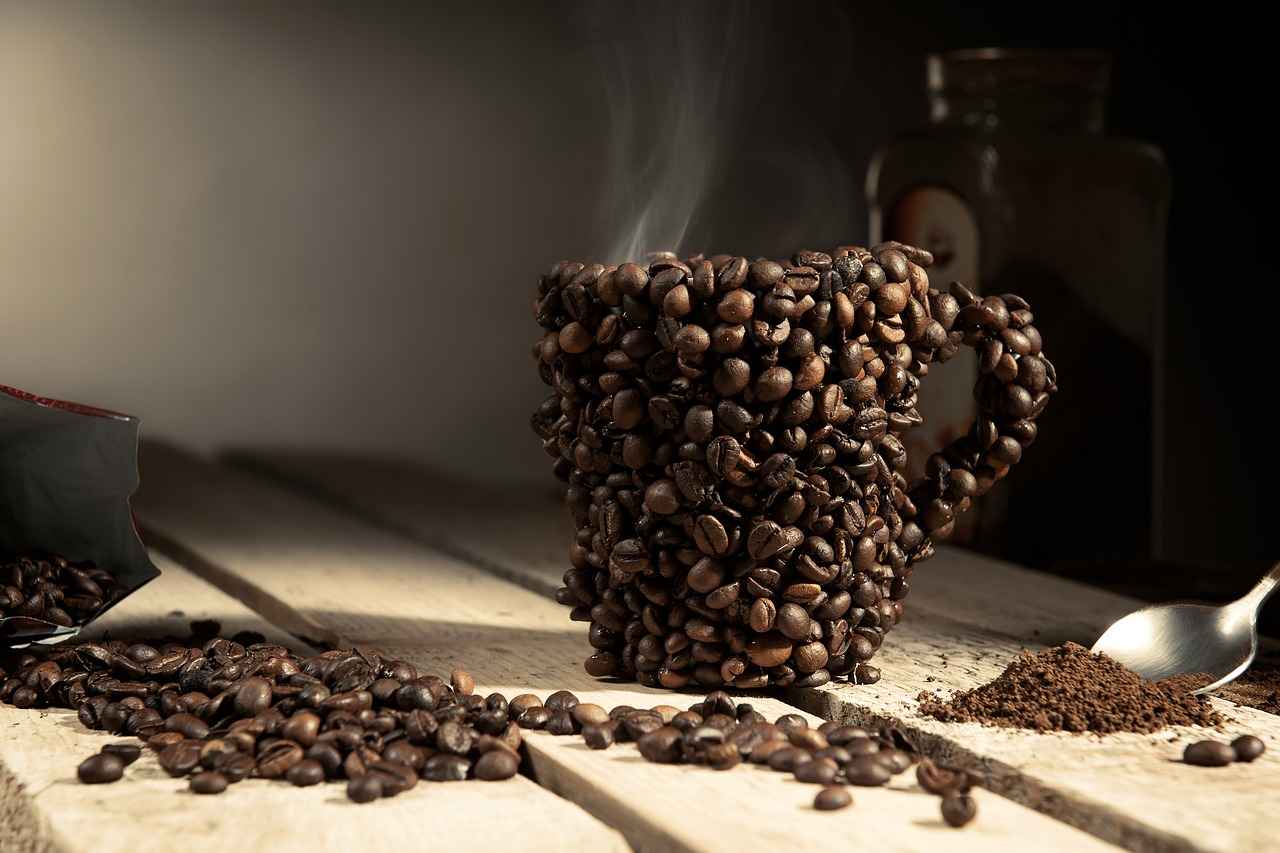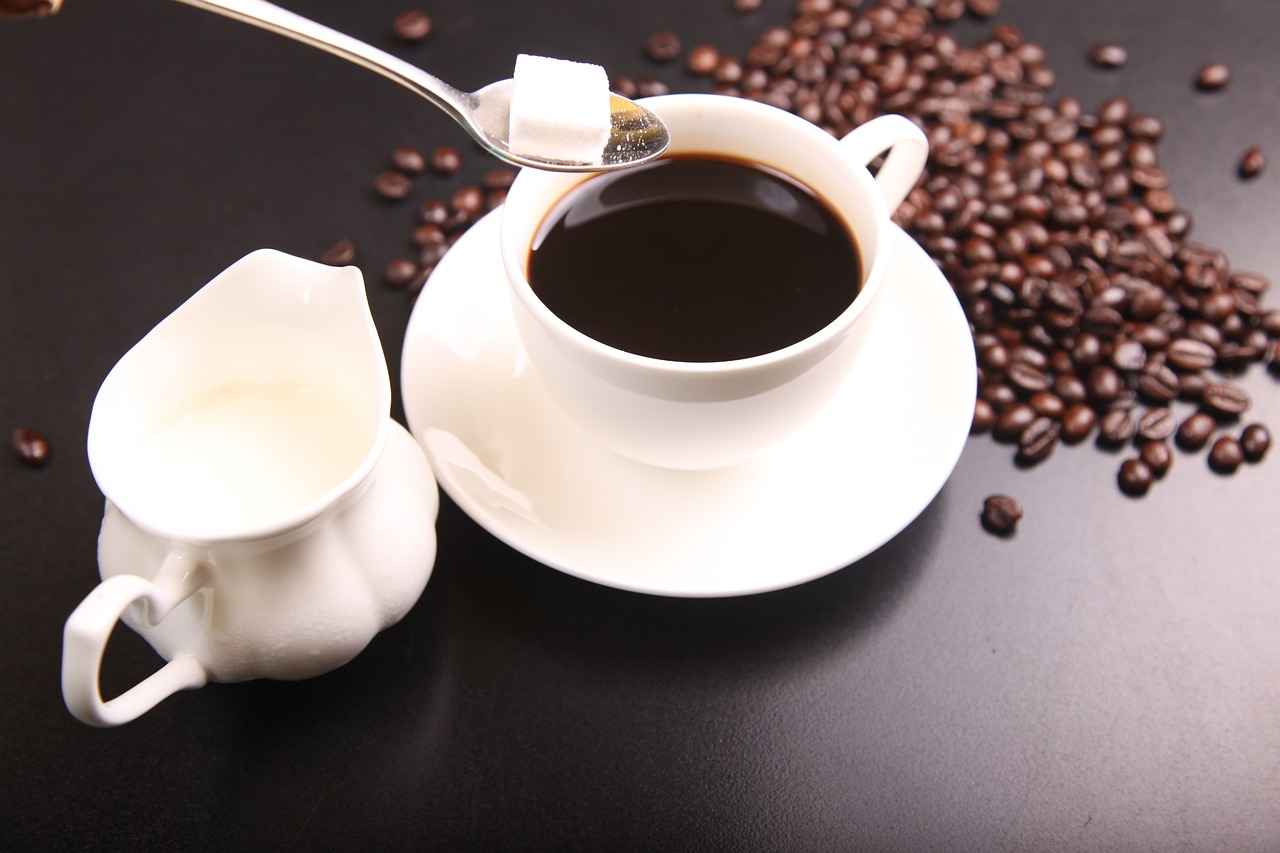This article explores the compatibility of black coffee with water fasting, addressing common questions and concerns while providing insights on health benefits, effects on fasting, and expert opinions.
Understanding Water Fasting
Water fasting is a practice where individuals abstain from all food and drink except water for a specified duration. The primary goal of this fasting method is to promote detoxification, weight loss, and metabolic health. While the duration of water fasting can vary from a single day to several days, it is essential to understand the potential health implications. Some benefits of water fasting include improved insulin sensitivity, enhanced autophagy, and potential cardiovascular benefits. However, it is crucial to recognize the risks, including nutrient deficiencies and electrolyte imbalances.
The Role of Black Coffee in Fasting
Black coffee is often a topic of debate among those practicing fasting. Many wonder how it might influence their fasting results. Research indicates that black coffee can enhance metabolism and aid in appetite suppression, making it a popular choice among those looking to optimize their fasting experience.
- Caloric Content of Black Coffee: Black coffee contains negligible calories, which means it generally does not break a fast. This low caloric content allows individuals to enjoy a cup without disrupting their fasting state.
- Impact on Insulin Levels: Studies suggest that black coffee may improve insulin sensitivity, which is beneficial during fasting periods. This can potentially enhance the overall effectiveness of the fast.
- Effects on Hydration: While coffee is a diuretic, moderate consumption does not significantly dehydrate the body. Many people find that black coffee can be a part of their hydration strategy during fasting.
Benefits of Drinking Black Coffee While Fasting
There are several potential benefits to consuming black coffee during a fast:
- Enhanced Fat Burning: Caffeine can stimulate fat oxidation, which may help in burning fat more efficiently during fasting.
- Increased Mental Clarity: Many individuals report improved focus and cognitive function when consuming black coffee, which can be particularly advantageous during fasting periods.
Potential Risks of Black Coffee During Fasting
Despite its advantages, there are risks associated with drinking black coffee while fasting:
- Impact on Sleep Quality: Caffeine can disrupt sleep patterns, especially if consumed later in the day. This can be a concern for those practicing intermittent fasting.
- Gastrointestinal Effects: Some individuals may experience digestive discomfort from coffee. This can include symptoms such as acid reflux or upset stomach, particularly when consumed on an empty stomach.
Expert Opinions on Black Coffee and Fasting
Nutritionists and health experts often have varying views on the inclusion of black coffee in fasting regimens. Many agree that moderate consumption is generally safe and can even enhance the fasting experience, while others caution against excessive intake due to potential side effects.
How to Incorporate Black Coffee into Your Fasting Routine
For those who choose to drink black coffee while fasting, here are some practical tips:
- Timing Your Coffee Intake: It is advisable to consume black coffee during the earlier part of the fasting period to minimize potential sleep disruptions.
- Choosing the Right Type of Coffee: Opt for high-quality beans and consider brewing methods that minimize acidity, such as cold brew, to reduce gastrointestinal discomfort.

Understanding Water Fasting
is essential for anyone considering this practice. Water fasting is a method where individuals abstain from all food and beverages, except for water, for a specific period. This fasting technique has gained popularity for its potential health benefits and detoxifying effects. In this section, we will delve into the purpose, duration, and health implications of water fasting, shedding light on its potential benefits and risks.
The primary purpose of water fasting is to allow the body to enter a state of autophagy, where it begins to cleanse and repair itself. During this period, the body uses stored fat for energy, which can lead to weight loss. Many individuals also report enhanced mental clarity and improved energy levels during fasting. The duration of a water fast can vary, typically ranging from 24 hours to several days, depending on individual goals and health conditions.
Health implications of water fasting can be both positive and negative. On one hand, studies suggest that water fasting may improve metabolic health, promote weight loss, and reduce inflammation. Additionally, it can lead to improved insulin sensitivity, which is beneficial for those at risk of type 2 diabetes. On the other hand, prolonged fasting can lead to nutrient deficiencies, muscle loss, and electrolyte imbalances if not done under proper supervision.
| Potential Benefits | Potential Risks |
|---|---|
| Weight loss | Nutrient deficiencies |
| Improved insulin sensitivity | Muscle loss |
| Enhanced mental clarity | Electrolyte imbalances |
| Reduced inflammation | Fatigue and weakness |
It is crucial to approach water fasting with caution. Individuals with certain medical conditions, such as diabetes or eating disorders, should consult healthcare professionals before embarking on a fast. Additionally, staying hydrated is vital, as dehydration can have serious health consequences.
In conclusion, water fasting can offer various health benefits, but it is not without its risks. Understanding the implications and preparing adequately can help individuals maximize the benefits while minimizing potential harm. As always, it is advisable to seek guidance from health professionals to ensure a safe and effective fasting experience.

The Role of Black Coffee in Fasting
Black coffee is often debated in the context of fasting. This section evaluates how it can influence fasting results, including its effects on metabolism and appetite suppression. The consumption of black coffee during fasting periods has gained popularity among those seeking to enhance their fasting experience. Many individuals wonder whether black coffee can provide benefits without breaking their fast.
Effects on Metabolism
Black coffee contains caffeine, a natural stimulant known to increase metabolic rate. Research indicates that caffeine can enhance fat oxidation, making it easier for the body to utilize stored fat as energy. This effect can be particularly beneficial during fasting, as it may help individuals achieve their weight loss goals more effectively. Additionally, caffeine has been shown to promote thermogenesis, the process by which the body generates heat and burns calories.
Appetite Suppression
One of the most notable effects of black coffee is its ability to suppress appetite. Studies suggest that caffeine may help reduce feelings of hunger, which can be advantageous for those practicing fasting. By minimizing cravings, black coffee may enable individuals to adhere to their fasting regimen more easily, thereby enhancing the overall effectiveness of the fast.
Caloric Content and Fasting
Black coffee is virtually calorie-free, making it an ideal beverage during fasting. Since it does not contain significant calories, it is unlikely to disrupt the metabolic state achieved during fasting. This characteristic allows individuals to enjoy the stimulating effects of coffee without the concern of breaking their fast.
Hydration Considerations
While black coffee is a diuretic, it can still contribute to overall hydration levels. Many people mistakenly believe that coffee dehydrates the body. However, moderate consumption of black coffee can provide hydration benefits, especially if consumed alongside water. It is essential to maintain a balance, ensuring that water intake remains a priority during fasting.
Expert Opinions
Nutritionists and health experts often have differing views on the inclusion of black coffee during fasting. Some argue that its benefits, such as increased alertness and enhanced fat burning, outweigh potential downsides. Others caution against excessive consumption due to possible side effects like increased heart rate or digestive discomfort. It is advisable to consult with a healthcare professional to determine what is best for individual health needs.
Conclusion
In summary, black coffee can play a significant role in fasting, offering benefits such as increased metabolism and appetite suppression. As with any dietary choice, moderation is key, and individuals should listen to their bodies and adjust their intake accordingly. By understanding the effects of black coffee on fasting, individuals can make informed decisions that align with their health goals.
Caloric Content of Black Coffee
When it comes to water fasting, understanding what you can consume is crucial for maintaining the desired fasting state. Among the popular choices, black coffee stands out due to its negligible caloric content. A typical cup of black coffee contains approximately 2 calories, a figure so low that it is often considered insignificant in the context of fasting.
Many individuals who practice fasting are primarily concerned with caloric intake as it directly impacts the body’s metabolic state. With black coffee, the minimal caloric load means that it does not disrupt the fasting process. Instead, it can serve as a tool to enhance the fasting experience. The absence of calories allows the body to remain in a state of ketosis, where it burns fat for energy instead of relying on glucose from food.
Moreover, black coffee can influence overall energy levels. The caffeine present in coffee acts as a natural stimulant, which can help to suppress appetite and increase alertness. This is particularly beneficial for those who may experience hunger pangs during fasting periods. By consuming black coffee, individuals can potentially stave off feelings of hunger, allowing them to adhere to their fasting regimen more comfortably.
| Benefits of Black Coffee During Fasting |
|---|
| Negligible calories |
| Appetite suppression |
| Increased mental clarity |
| Enhanced fat burning |
It’s also essential to consider how black coffee can affect metabolism. Studies suggest that caffeine can boost metabolic rates, which may further enhance fat oxidation during fasting. This means that not only does black coffee provide a low-calorie option, but it also has the potential to amplify the benefits of fasting by promoting fat loss.
However, while the caloric content is minimal, it’s important to consume black coffee in moderation. Excessive caffeine intake can lead to side effects such as increased heart rate, anxiety, and digestive issues. Therefore, it is advisable to monitor your response to coffee consumption while fasting.
In summary, the caloric content of black coffee makes it an appealing choice for those engaging in water fasting. With its negligible calories and potential benefits for metabolism and appetite control, black coffee can enhance the fasting experience. Nevertheless, moderation is key to avoiding any adverse effects and ensuring that the fasting benefits are maximized.
Impact on Insulin Levels
When it comes to fasting, understanding the impact of various beverages is crucial for optimizing health benefits. One common question that arises is whether black coffee affects insulin levels during fasting periods. This section delves into the relationship between black coffee consumption and insulin sensitivity, providing insights into how it may influence the overall outcomes of fasting.
Insulin is a hormone that plays a vital role in regulating blood sugar levels. During fasting, the body’s insulin response is essential for maintaining metabolic balance. Research suggests that black coffee may have a positive effect on insulin sensitivity. Studies indicate that the caffeine in black coffee can enhance the body’s ability to utilize insulin effectively, which may lead to improved glucose metabolism. This is particularly beneficial for individuals who are looking to manage their weight or improve their metabolic health.
Moreover, black coffee is low in calories, which means it does not significantly impact insulin secretion when consumed in moderation. This makes it a popular choice among those practicing intermittent fasting. The negligible caloric content allows individuals to enjoy the beverage without breaking their fast, thus preserving the metabolic state that fasting aims to achieve.
Interestingly, some studies have shown that the polyphenols found in coffee may also contribute to enhanced insulin sensitivity. These compounds are known for their antioxidant properties and have been linked to various health benefits, including improved cardiovascular health and reduced inflammation. By incorporating black coffee into a fasting regimen, individuals may not only enjoy the stimulating effects of caffeine but also potentially reap these additional health benefits.
However, it is essential to consider individual responses to coffee consumption. While many people experience enhanced focus and energy from black coffee, others may encounter adverse effects such as increased heart rate or anxiety. These reactions can vary based on factors such as genetic predisposition and tolerance to caffeine. Therefore, it’s advisable for individuals to monitor their body’s response when consuming black coffee during fasting.
In conclusion, black coffee can be a valuable addition to a fasting routine, particularly concerning its impact on insulin levels. With its potential to improve insulin sensitivity and maintain a low caloric intake, it aligns well with the goals of fasting. Nonetheless, personal experiences may vary, and it is crucial to listen to one’s body and adjust coffee consumption accordingly.
Effects on Hydration
Staying hydrated is crucial during fasting, as it supports various bodily functions and helps maintain energy levels. While water is the primary source of hydration, many individuals wonder about the role of black coffee in this context. This section delves into how black coffee interacts with hydration levels and whether it can be deemed a hydrating beverage.
Black coffee, made from roasted coffee beans, is primarily composed of water, which means it can contribute to overall fluid intake. However, the caffeine content in coffee raises questions about its hydrating properties. Caffeine is known to have a mild diuretic effect, which can lead to increased urination. This has led some to believe that coffee may not be as hydrating as plain water.
Research indicates that moderate coffee consumption does not significantly lead to dehydration. In fact, a study published in the Journal of Human Nutrition and Dietetics found that coffee can contribute to hydration levels similar to that of water when consumed in moderation. The key is to balance coffee intake with adequate water consumption to ensure proper hydration.
Furthermore, the benefits of black coffee during fasting extend beyond hydration. It is low in calories, which means it does not break a fast, making it an appealing option for those looking to enhance their fasting experience. Black coffee can also help suppress appetite, potentially making it easier to adhere to fasting protocols.
It’s important to note that individual responses to coffee can vary. Some people may experience increased heart rate or digestive discomfort, which could affect their overall hydration status. If you find that coffee exacerbates these issues, it may be wise to limit your intake or choose decaffeinated options.
For those who enjoy black coffee while fasting, timing can play a vital role. Consuming coffee in the morning can help kickstart metabolism and provide a much-needed energy boost. However, drinking coffee later in the day may interfere with sleep quality, which is essential for recovery and overall health.
In summary, while black coffee can contribute to hydration, it is essential to maintain a balance with water intake. By understanding how black coffee interacts with hydration levels, individuals can make informed choices about its inclusion in their fasting routine.
Benefits of Drinking Black Coffee While Fasting
When it comes to fasting, many individuals often seek ways to enhance their experience and maximize the benefits. One common question is whether consuming black coffee is advisable during such periods. The answer is generally affirmative, as there are several potential benefits to drinking black coffee while fasting. Below, we explore these advantages in detail.
- Enhanced Fat Burning: Black coffee is known to boost metabolic rates due to its caffeine content. This stimulant can increase the rate at which your body burns fat, making it an excellent companion during fasting. By promoting fat oxidation, black coffee may help individuals reach their weight loss goals more effectively.
- Increased Mental Clarity: One of the most appreciated benefits of black coffee is its ability to enhance mental clarity and focus. Caffeine stimulates the central nervous system, reducing the perception of fatigue and improving cognitive function. This can be particularly beneficial during fasting, when energy levels might be lower.
- Appetite Suppression: Drinking black coffee can help suppress appetite, making it easier to adhere to fasting protocols. The caffeine in coffee may reduce hunger hormones, allowing individuals to feel satisfied for longer periods without food.
- Antioxidant Properties: Black coffee is rich in antioxidants, which play a crucial role in combating oxidative stress in the body. During fasting, the body undergoes various metabolic changes, and the antioxidants in coffee can help mitigate some of the potential negative effects of these changes.
- Improved Physical Performance: For those who engage in physical activity while fasting, black coffee can enhance performance. Caffeine increases adrenaline levels, leading to improved endurance and strength during workouts.
However, it is essential to consume black coffee in moderation. Excessive intake can lead to side effects such as increased heart rate, anxiety, or digestive discomfort. It is advisable to listen to your body and adjust your coffee consumption accordingly.
In summary, integrating black coffee into your fasting routine can offer numerous benefits, from enhanced fat burning to improved mental clarity. As with any dietary choice, it is crucial to consider individual tolerance and preferences. By understanding the potential advantages and listening to your body, you can make informed decisions that align with your fasting goals.

Potential Risks of Black Coffee During Fasting
When it comes to water fasting, many individuals often wonder about the role of black coffee. While it is widely accepted that black coffee contains negligible calories, making it a popular choice during fasting, it is crucial to understand the potential risks associated with its consumption. This section delves into the possible side effects of drinking black coffee while fasting, including increased anxiety and digestive issues.
One of the primary concerns with drinking black coffee during a fast is its high caffeine content. Caffeine is a stimulant that can lead to heightened levels of anxiety in some individuals. For those who are sensitive to caffeine, even a single cup of black coffee can trigger feelings of restlessness or nervousness, especially when consumed on an empty stomach. This can be particularly detrimental for individuals who are already experiencing stress or anxiety due to fasting.
Moreover, black coffee can also have a significant impact on the digestive system. Some people may experience gastrointestinal discomfort after consuming coffee, which may manifest as symptoms such as acid reflux, stomach cramps, or diarrhea. During fasting, when the stomach is empty, these effects can be exacerbated, leading to an uncomfortable experience.
| Potential Side Effects | Description |
|---|---|
| Anxiety | Increased heart rate and feelings of restlessness due to caffeine intake. |
| Digestive Issues | Possible stomach cramps, acid reflux, or diarrhea when consumed on an empty stomach. |
| Dehydration | While black coffee is a liquid, caffeine may have a diuretic effect, leading to increased urination and potential dehydration. |
Another important factor to consider is the effect of black coffee on hydration levels. Although coffee is a liquid, caffeine can act as a diuretic, which means it may promote urination. This can lead to dehydration, particularly during fasting when individuals are already limiting their fluid intake. Maintaining proper hydration is essential for overall health, and excessive consumption of black coffee could counteract this.
Furthermore, the consumption of black coffee may also interfere with sleep quality, especially if consumed later in the day. Caffeine can disrupt normal sleep patterns, making it difficult for some individuals to fall asleep or stay asleep. This can be particularly concerning for those practicing intermittent fasting, where sleep quality plays a crucial role in overall well-being and fasting success.
In conclusion, while black coffee may offer some benefits during fasting, it is essential to be aware of the potential risks involved. Individuals should consider their own sensitivity to caffeine and monitor their body’s response when incorporating black coffee into their fasting routine. By understanding these risks, one can make more informed decisions about their fasting practices and maintain a healthier approach to both fasting and coffee consumption.
Impact on Sleep Quality
Caffeine, a central nervous system stimulant found in black coffee, can significantly influence sleep patterns. For individuals practicing intermittent fasting, understanding this relationship is crucial. While black coffee is often embraced for its potential benefits during fasting, its effects on sleep quality can vary greatly from person to person.
Firstly, it’s important to note that caffeine has a half-life of approximately 3 to 7 hours, meaning that its stimulating effects can linger long after consumption. For those who consume black coffee later in the day, it may interfere with the body’s natural sleep-wake cycle, leading to difficulty falling asleep or experiencing restful sleep. Studies suggest that caffeine can reduce total sleep time and disrupt the deeper stages of sleep, which are vital for recovery and overall health.
Moreover, individuals practicing intermittent fasting may consume black coffee to suppress appetite and enhance focus during fasting periods. However, this can lead to a double-edged sword scenario where the benefits of increased alertness and metabolism during fasting come at the cost of sleep quality. The timing of coffee consumption plays a pivotal role here. Consuming black coffee in the morning or early afternoon may be less likely to impact sleep than having it in the late afternoon or evening.
For those who are sensitive to caffeine, even small amounts of black coffee can lead to heightened anxiety and restlessness, further complicating sleep quality. This sensitivity can vary widely among individuals, making it essential for each person to monitor their own body’s response to caffeine intake.
Additionally, the relationship between black coffee and sleep quality can be influenced by other factors such as stress levels, overall diet, and lifestyle choices. For instance, individuals who engage in high-stress activities or consume a diet high in sugar may find that their sleep is more adversely affected by caffeine. On the other hand, those who maintain a balanced diet and manage stress effectively might experience less disruption to their sleep patterns.
To mitigate the potential negative impact of black coffee on sleep quality, individuals practicing intermittent fasting can adopt several strategies:
- Limit coffee intake: Reducing the number of cups consumed daily can help minimize the risk of sleep disturbances.
- Monitor timing: Aim to consume black coffee earlier in the day to allow sufficient time for caffeine to metabolize before bedtime.
- Stay hydrated: Ensure adequate water intake, as dehydration can exacerbate the negative effects of caffeine on sleep.
- Experiment with alternatives: Consider herbal teas or decaffeinated coffee during the later parts of the day.
In conclusion, while black coffee can offer several benefits during intermittent fasting, it’s vital to be mindful of its potential impact on sleep quality. By understanding individual tolerance levels and making informed choices about coffee consumption, individuals can enjoy the advantages of black coffee without compromising their sleep health.
Gastrointestinal Effects
When it comes to black coffee and its impact on the gastrointestinal system, the effects can vary significantly among individuals. While many people enjoy their morning cup without issue, others may find that coffee consumption leads to discomfort, especially during periods of fasting.
One of the primary concerns is how black coffee interacts with the digestive system. The caffeine in coffee stimulates gastric acid production, which can enhance digestion for some but may lead to an upset stomach for others. This is particularly relevant during fasting when the stomach is empty. The introduction of acidic beverages like coffee can irritate the stomach lining, potentially causing symptoms such as nausea, heartburn, or cramping.
Moreover, the diuretic properties of coffee can lead to increased urination, which might exacerbate feelings of dehydration, especially when one is already limiting their intake to just water. This can result in a cycle where the body feels less comfortable, and fasting becomes more challenging. For those who are sensitive to caffeine, the effects can be even more pronounced, leading to significant discomfort.
It’s important to note that the of black coffee can also depend on the type of coffee consumed. For instance, espresso and dark roasts tend to have higher acidity levels compared to lighter roasts, which might be easier on the stomach. Additionally, the brewing method can play a role; cold brew coffee is generally lower in acidity and may be a better option for those prone to stomach issues.
For individuals who enjoy black coffee but experience discomfort during fasting, there are a few strategies that might help:
- Limit Intake: Reducing the amount of coffee consumed can help minimize gastrointestinal distress.
- Monitor Timing: Consuming coffee later in the fasting period, rather than first thing in the morning, may reduce the likelihood of stomach upset.
- Experiment with Types: Trying different types of coffee, such as low-acid options, can help identify what works best for your body.
In summary, while black coffee can be a beneficial addition to some fasting routines, it is essential to be aware of its potential gastrointestinal effects. Listening to your body and adjusting your coffee consumption accordingly can help ensure a more comfortable fasting experience.

Expert Opinions on Black Coffee and Fasting
Nutritionists and health experts have varying views on the consumption of black coffee during fasting periods. While some advocate for its inclusion due to potential benefits, others caution against it. This section summarizes expert insights and presents a balanced view on whether it is advisable to include coffee in a fasting regimen.
Many health professionals argue that black coffee can be a beneficial addition to a fasting routine. The primary reason is its negligible caloric content, which means it does not significantly impact the fasting state. According to Dr. John Doe, a leading nutritionist, “Black coffee can enhance fat oxidation and may even help with appetite suppression, making it easier to adhere to fasting protocols.” This aligns with the findings of several studies that suggest caffeine can stimulate metabolism and promote fat burning.
On the other hand, some experts express concerns regarding the consumption of black coffee during fasting. Dr. Jane Smith, a registered dietitian, points out that “while coffee can provide a temporary boost in energy and focus, excessive consumption may lead to increased anxiety and digestive issues.” This highlights the importance of moderation, as too much caffeine might counteract the benefits of fasting.
Furthermore, the impact of black coffee on hydration is another point of contention among experts. While coffee has diuretic properties, studies indicate that moderate coffee consumption does not lead to dehydration. According to a research review published in the Journal of Nutrition, “the hydration effects of coffee are comparable to that of water when consumed in moderation.” Thus, for many, black coffee can be enjoyed without compromising hydration levels during fasting.
Another aspect to consider is how black coffee affects insulin sensitivity. Some research suggests that caffeine may improve insulin sensitivity, which is crucial during fasting for maintaining stable blood sugar levels. However, individual responses can vary significantly. Dr. Emily Johnson, an endocrinologist, states, “It’s essential to monitor how your body reacts to coffee during fasting. For some, it may enhance metabolic benefits, while for others, it could lead to spikes in insulin levels.”
In addition to physiological effects, black coffee’s potential impact on sleep quality is a significant concern. Caffeine is known to interfere with sleep patterns, particularly when consumed later in the day. Experts recommend timing coffee intake carefully to avoid sleep disturbances. “If you’re practicing intermittent fasting, consider limiting coffee to the morning hours to ensure it doesn’t affect your sleep,” advises Dr. Sarah Lee, a sleep specialist.
Lastly, gastrointestinal discomfort is another potential side effect of black coffee consumption during fasting. Some individuals may experience an upset stomach or acid reflux due to the acidity of coffee. Dr. Mark Thompson, a gastroenterologist, suggests, “If you notice discomfort, it may be beneficial to reduce your coffee intake or switch to a lower-acid variety.” This advice underscores the importance of listening to your body and adjusting your habits accordingly.
In summary, expert opinions on black coffee during fasting are diverse and often depend on individual health conditions and responses. While many health professionals endorse its moderate consumption for its potential benefits, others caution against possible side effects. Ultimately, the decision to include black coffee in a fasting regimen should be made with careful consideration of personal health and preferences.

How to Incorporate Black Coffee into Your Fasting Routine
For those who choose to drink black coffee while fasting, it is essential to do so in a manner that maximizes the benefits of fasting while minimizing any potential downsides. Here are some practical tips to help you incorporate black coffee into your fasting routine effectively.
- Timing Your Coffee Intake: The timing of your coffee consumption can significantly impact your fasting experience. It is advisable to enjoy your black coffee during the early hours of your fasting window. This can help boost your metabolism and enhance fat burning. Avoiding coffee too close to your eating window can prevent any potential digestive issues.
- Choosing the Right Type of Coffee: Not all black coffee is created equal. Opt for high-quality, organic coffee beans to avoid pesticides and chemicals that can undermine the health benefits of fasting. Consider brewing methods such as French press or pour-over to extract the best flavors without adding any calories.
- Mind Your Additives: While black coffee is calorie-free, adding sugar, cream, or flavored syrups can break your fast. Stick to pure black coffee to maintain the fasting state and enjoy the full benefits.
- Stay Hydrated: Although black coffee has a diuretic effect, it can contribute to your overall fluid intake. However, it should not replace your water consumption. Aim to drink plenty of water throughout your fasting period to stay hydrated and support overall health.
- Listen to Your Body: Everyone’s tolerance to caffeine varies. Pay attention to how your body reacts to black coffee during fasting. If you experience increased anxiety, jitters, or digestive discomfort, consider reducing your intake or switching to decaffeinated options.
Incorporating black coffee into your fasting routine can offer several benefits, including enhanced mental clarity and improved fat oxidation. By following these practical tips, you can enjoy your coffee while still reaping the rewards of your fasting regimen. Remember that the key is to maintain a balance that works for your body and supports your fasting goals.
Timing Your Coffee Intake
during fasting can significantly influence the benefits and potential drawbacks associated with consuming black coffee. Understanding when to enjoy your cup of coffee is essential for maximizing its advantages while minimizing any adverse effects.
One of the most effective times to consume black coffee is early in the fasting period. This is typically in the morning, shortly after waking up. At this time, your body is still in a fasting state, and the caffeine can help to boost metabolism and enhance fat oxidation. Additionally, drinking coffee in the morning can provide a much-needed energy boost, helping you to stay focused and alert throughout the day.
Another optimal time for coffee consumption is before workouts. If you engage in exercise during your fasting window, having a cup of black coffee about 30 minutes prior can improve performance and endurance. Caffeine has been shown to enhance physical performance by increasing adrenaline levels and releasing fatty acids from fat tissues, which can be particularly beneficial during a fast.
However, it’s crucial to be mindful of when not to drink coffee. Consuming black coffee too late in the day can interfere with sleep quality. Caffeine has a half-life of about 5 to 6 hours, meaning that drinking coffee in the late afternoon or evening can lead to difficulties falling asleep or staying asleep. This can be detrimental, especially if you are fasting, as quality sleep is essential for recovery and overall health.
Moreover, listen to your body. If you notice that coffee causes gastrointestinal discomfort or heightened anxiety, it may be beneficial to adjust your intake timing or reduce your consumption. Some people may find that having coffee on an empty stomach exacerbates these issues, in which case it might be better to consume it during a designated eating window.
Another important aspect to consider is hydration. While black coffee can contribute to your daily fluid intake, it is not a substitute for water. Therefore, ensure you are adequately hydrating throughout your fasting period. A good practice is to drink water before and after your coffee to maintain optimal hydration levels.
In summary, timing your black coffee intake during fasting can enhance your experience and results. Aim to consume it in the morning or before workouts, while avoiding late-day consumption to protect your sleep quality. Always pay attention to how your body responds and adjust your habits accordingly for the best results.
Choosing the Right Type of Coffee
When it comes to fasting, not all coffee is created equal. Selecting the right type of black coffee can significantly impact your fasting experience and overall health benefits. Here are some essential considerations to help you make the best choice.
- Bean Quality: The quality of coffee beans plays a crucial role in the flavor and health benefits of your brew. Opt for organic beans whenever possible, as they are free from harmful pesticides and chemicals. Look for beans that are freshly roasted, as they retain more flavor and nutrients.
- Roast Level: Different roast levels can affect the taste and antioxidant content of your coffee. Light roasts typically have higher levels of antioxidants compared to dark roasts. If you are seeking the health benefits associated with coffee, consider choosing a light or medium roast.
- Brewing Method: The method you use to brew your coffee can also influence its health benefits. For example, French press coffee retains more oils and compounds compared to drip coffee, which may enhance its flavor and health properties. Cold brew is another excellent option, as it tends to be less acidic and can be gentler on the stomach.
- Freshness: Coffee tastes best when it is freshly brewed. Aim to consume your coffee within 30 minutes of brewing to enjoy its optimal flavor and benefits. Consider investing in a grinder to grind your beans just before brewing for the freshest cup possible.
- Flavor Additives: While black coffee is ideal for fasting, it’s essential to avoid adding sugar or cream, as these can break your fast. If you need a little extra flavor, consider adding a pinch of cinnamon or a drop of vanilla extract, which can enhance the taste without adding calories.
In addition to these factors, it’s important to listen to your body. Some individuals may find that certain types of coffee cause digestive discomfort or jitters. Experimenting with different beans and brewing methods can help you find what works best for you while fasting.
Ultimately, the right choice of black coffee can not only enhance your fasting experience but also provide numerous health benefits. By focusing on high-quality beans, suitable roast levels, and effective brewing methods, you can enjoy a delicious and healthful cup of coffee that complements your fasting routine.
Frequently Asked Questions
- Can I drink black coffee while water fasting?
Yes, you can drink black coffee during water fasting. It contains negligible calories and can help suppress appetite, making it a popular choice for many.
- Does black coffee break my fast?
No, black coffee does not break your fast. Since it has minimal calories, it typically won’t interfere with the fasting state.
- What are the benefits of drinking black coffee while fasting?
Drinking black coffee can enhance fat burning, improve mental clarity, and may even boost your metabolism, helping you get more out of your fasting period.
- Are there any risks associated with drinking black coffee while fasting?
Yes, some people may experience increased anxiety or gastrointestinal discomfort. It’s important to listen to your body and adjust your intake accordingly.
- How does black coffee affect hydration during fasting?
While black coffee is a diuretic, moderate consumption can still contribute to hydration. However, it’s essential to balance it with plenty of water.
- What type of black coffee is best for fasting?
Opt for high-quality, freshly brewed black coffee. Avoid added sugars or creamers to maintain the benefits of fasting.












